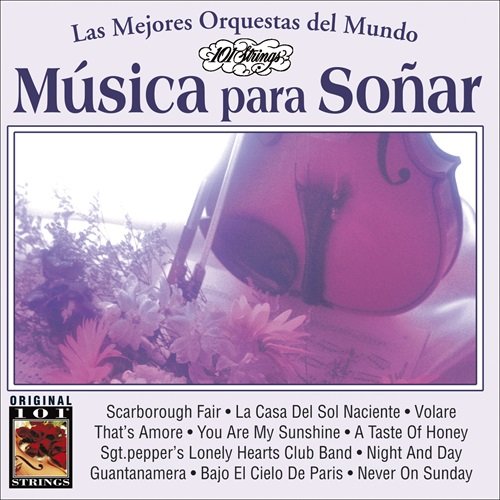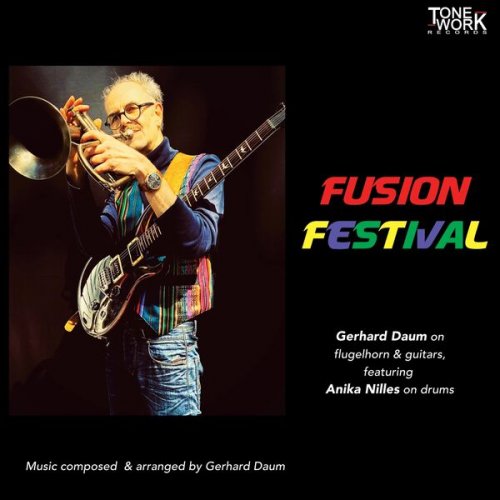Eliane Elias - Love Stories (2019) [Hi-Res]
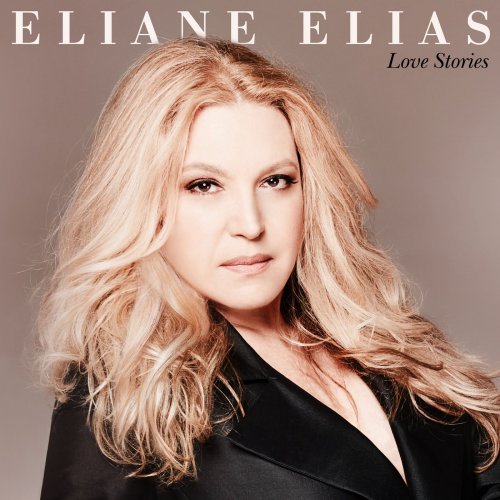
Artist: Eliane Elias
Title: Love Stories
Year Of Release: 2019
Label: Concord Jazz
Genre: Vocal Jazz
Quality: Mp3 320 kbps / FLAC (tracks) / 24bit-96kHz FLAC (tracks)
Total Time: 43:35
Total Size: 102 / 268 / 924 MB
WebSite: Album Preview
Tracklist:Title: Love Stories
Year Of Release: 2019
Label: Concord Jazz
Genre: Vocal Jazz
Quality: Mp3 320 kbps / FLAC (tracks) / 24bit-96kHz FLAC (tracks)
Total Time: 43:35
Total Size: 102 / 268 / 924 MB
WebSite: Album Preview
1. A Man And A Woman
2. Baby Come To Me
3. Bonita
4. Angel Eyes
5. Come Fly With Me
6. The Simplest Things
7. Silence
8. Little Boat
9. The View
Eliane Elias ascends to a new echelon of artistic expression with the August 30, 2019 release of Love Stories on Concord Jazz. A multi-hyphenate musician whose recent releases Made in Brazil (2015), Dance of Time (2017) and Man of La Mancha (2018) have earned her multiple GRAMMY Award wins and No.1 Billboard chart debuts, Elias’ new orchestral project serves as a classic homage to love in its many facets and forms.
Love Stories is an orchestral album, revealing Elias’ mastery and preeminence as a multifaceted artist – a vocalist, pianist, arranger, composer, lyricist and producer. Sung almost entirely in English, the album features three original compositions plus seven superb arrangements of pieces from bossa nova’s golden age, including songs made famous by Frank Sinatra and Antonio Carlos Jobim.
As both an interpreter and composer, Elias inhabits the rich tradition of bossa while bringing the music into the present. She infuses familiar songs with unexpected twists that intensify the music’s evocative power – whether by creating harmonic modulations that enhance a lyric or shifting the rhythmic feel of a section to heighten its emotion – allowing the subtle complexities of her voice to take centerstage, all the while.
Noting that romantic love is just one of a wide range of ways the emotion gets manifested, Elias says, “The idea for this album was to bring to life various stories of love and loving through this collection of songs.”
As she tells those stories, Elias brings a depth of feeling to the album that comes courtesy of her evocative approach as a pianist and singer as well as the precision with which she’s able to execute her musical vision.
“From the moment of conception, it couldn’t be more integrated,” she explains. “From the first note that’s chosen, every color I create in the arrangements, the modulations, the choice of keys, the small group arranging, the possibilities for orchestra – it’s as deep into my personal taste as it can go…because I’m envisioning the arrangement; deciding how to convey the song and perform it with the band, and being mindful of the future orchestrations all at once.”
For the album, Elias invited some of her favorite Brazilian rhythm section players to join her – Marcus Texiera on guitar and Edu Ribeiro, Rafael Barata and Celso Almeida on drums – plus her core collaborators, co-producer and bassist Marc Johnson and co-producer Steve Rodby. Orchestrator Rob Mathes returns for his fourth recording with Elias as well, bringing his lush string arrangements into flawless sync with Elias’ rich harmonic and varied rhythmic approaches, as he did on her GRAMMY Award-winning 2015 album, Made in Brazil.
A celebrated interpreter of Jobim, Elias sees undercurrents of his long collaborative history with orchestrator Claus Ogerman in the working relationship she’s developed with Mathes.
Says Johnson: “Rob’s orchestrations all go so deep and are so beautifully intertwined with Eliane’s small group arrangements. He also understands voice distribution so well. He’s said that in the process of writing the arrangements, he immerses himself in the recorded basic tracks, and, in even more detail, into Eliane’s piano voicings. Rob is absolutely on the same emotional wavelength as Eliane.”
This emotional connection is essential given the circumstances from which the album was born. Elias began working on the music for Love Stories through a difficult year in which she lost her father, and four months prior to his passing, fractured her shoulder in an accident in her hometown of Sao Paulo, Brazil. She was rendered virtually immobile for months while recovering in her apartment there. As she recuperated, her window view of breeze-tickled palm trees and balconies against the blue Sao Paulo sky became the backdrop for a new set of musical inspiration.
“During that period, I wasn’t allowed to move, my left arm was in a sling and so to avoid surgery I had to stay immobilized and really still,” she recalls. “Meanwhile, I created and wrote all of these arrangements in that state.”
The album opens with a tone-setting bossa nova groove and Elias’ sensual, velvety voice, inspiring us with the message of taking a chance on love, from the vintage pop gem of Frances Lai’s theme song from the Oscar-winning 1966 French film, “A Man and a Woman.”
It’s a seamless jump from that to Elias’ take on “Baby, Come to Me.” Made famous in the early ’80s by Patti Austin and James Ingram, the song gets reworked here in characteristic Elias fashion, as she smoothly moves from a bossa nova to a hybrid Latin feel, with brilliant harmonic and tempo modulations. Added to the backdrop of soaring strings and rich piano voicings, the tune becomes altogether new.
“I like the message of cultivating a relationship, of keeping the romance alive when you find someone you love.” says Elias, who enlisted yet another of her go-to collaborators, Take 6’s multiple GRAMMY Award-winning Mark Kibble, to cover the background vocals.
There’s a heartfelt vulnerability to Elias’ lilting, expressive singing on “Bonita,” a dreamy rendition of one of Jobim and Sinatra’s late ’60s collaborations that features some lovely interplay between the piano and orchestra alongside Elias’ delicate and nuanced vocal phrasing.
“It’s a very pure expression of someone who wants their love to be accepted and returned,” Elias says.
The Sinatra homage continues with a twinkling, sexy take on “Angel Eyes,” followed by a brilliant rendition of “Come Fly with Me” that’s re-imagined with a Brazilian groove and carries the listener away with a passionate, high-flying piano solo.
Elias explores yet another aspect of love on her warm toned original “The Simplest Things,” a rich and multi-layered musing on a love that has stood the test of time. The message here – about looking back on a love that’s matured and discovering that “the simplest things are the wonderful things” in that shared life – is a profound and sweet universal truth that we can all relate to.
On “Silence,” the album’s second original piece, the mood is decidedly more intense as Elias channels the protagonist of the story’s anguish. “My voice here is the most exposed on the album,” Elias says. “I believe that most everyone has experienced disappointment or disillusionment at some point in their lives. The question is how does one respond to that?”
A bright and buoyant rendition of “Little Boat,” where you can almost feel the waves gently undulating in time with Elias’ rocking piano solo, changes the mood again. Roberto Menescal, the song’s composer, plays the guitar on this track and the opening verse features the only moment on the recording in which Elias sings in Portuguese.
The album closes with one more original, “The View.” This story is a bit more adult and complicated, given its suggestive imagery. There’s a rendezvous and a vision of a woman rolling down her stockings – but her apparition is almost like a dream or an angel. “The story is about something more internalized,” says Elias, “somewhere between reality and imagination, erotic yet pure in love and love’s expression.”
It’s also an appropriately complex finish to an album that digs deep musically to shine new light on one of our deepest human experiences. In the process, it offers a portrait of an incomparable artist whose sound resonates from decades of experience – in music as in life.
Of the connection with her instrument Elias has said, “the piano is an extension of my body and the deepest expression of my soul.” Love Stories proves her voice now occupies that place, as well.
Eliane Elias, vocals, piano
Marc Johnson, bass
Marcus Teixeira, guitar
Daniel Santiago, guitar
Robert Menescal, guitar
Edu Rieeiro, drums
Rafael Barate, drums
Paulo Braga, drums
Celso de Almeida, drums
Mark Kibble, background vocals
Love Stories is an orchestral album, revealing Elias’ mastery and preeminence as a multifaceted artist – a vocalist, pianist, arranger, composer, lyricist and producer. Sung almost entirely in English, the album features three original compositions plus seven superb arrangements of pieces from bossa nova’s golden age, including songs made famous by Frank Sinatra and Antonio Carlos Jobim.
As both an interpreter and composer, Elias inhabits the rich tradition of bossa while bringing the music into the present. She infuses familiar songs with unexpected twists that intensify the music’s evocative power – whether by creating harmonic modulations that enhance a lyric or shifting the rhythmic feel of a section to heighten its emotion – allowing the subtle complexities of her voice to take centerstage, all the while.
Noting that romantic love is just one of a wide range of ways the emotion gets manifested, Elias says, “The idea for this album was to bring to life various stories of love and loving through this collection of songs.”
As she tells those stories, Elias brings a depth of feeling to the album that comes courtesy of her evocative approach as a pianist and singer as well as the precision with which she’s able to execute her musical vision.
“From the moment of conception, it couldn’t be more integrated,” she explains. “From the first note that’s chosen, every color I create in the arrangements, the modulations, the choice of keys, the small group arranging, the possibilities for orchestra – it’s as deep into my personal taste as it can go…because I’m envisioning the arrangement; deciding how to convey the song and perform it with the band, and being mindful of the future orchestrations all at once.”
For the album, Elias invited some of her favorite Brazilian rhythm section players to join her – Marcus Texiera on guitar and Edu Ribeiro, Rafael Barata and Celso Almeida on drums – plus her core collaborators, co-producer and bassist Marc Johnson and co-producer Steve Rodby. Orchestrator Rob Mathes returns for his fourth recording with Elias as well, bringing his lush string arrangements into flawless sync with Elias’ rich harmonic and varied rhythmic approaches, as he did on her GRAMMY Award-winning 2015 album, Made in Brazil.
A celebrated interpreter of Jobim, Elias sees undercurrents of his long collaborative history with orchestrator Claus Ogerman in the working relationship she’s developed with Mathes.
Says Johnson: “Rob’s orchestrations all go so deep and are so beautifully intertwined with Eliane’s small group arrangements. He also understands voice distribution so well. He’s said that in the process of writing the arrangements, he immerses himself in the recorded basic tracks, and, in even more detail, into Eliane’s piano voicings. Rob is absolutely on the same emotional wavelength as Eliane.”
This emotional connection is essential given the circumstances from which the album was born. Elias began working on the music for Love Stories through a difficult year in which she lost her father, and four months prior to his passing, fractured her shoulder in an accident in her hometown of Sao Paulo, Brazil. She was rendered virtually immobile for months while recovering in her apartment there. As she recuperated, her window view of breeze-tickled palm trees and balconies against the blue Sao Paulo sky became the backdrop for a new set of musical inspiration.
“During that period, I wasn’t allowed to move, my left arm was in a sling and so to avoid surgery I had to stay immobilized and really still,” she recalls. “Meanwhile, I created and wrote all of these arrangements in that state.”
The album opens with a tone-setting bossa nova groove and Elias’ sensual, velvety voice, inspiring us with the message of taking a chance on love, from the vintage pop gem of Frances Lai’s theme song from the Oscar-winning 1966 French film, “A Man and a Woman.”
It’s a seamless jump from that to Elias’ take on “Baby, Come to Me.” Made famous in the early ’80s by Patti Austin and James Ingram, the song gets reworked here in characteristic Elias fashion, as she smoothly moves from a bossa nova to a hybrid Latin feel, with brilliant harmonic and tempo modulations. Added to the backdrop of soaring strings and rich piano voicings, the tune becomes altogether new.
“I like the message of cultivating a relationship, of keeping the romance alive when you find someone you love.” says Elias, who enlisted yet another of her go-to collaborators, Take 6’s multiple GRAMMY Award-winning Mark Kibble, to cover the background vocals.
There’s a heartfelt vulnerability to Elias’ lilting, expressive singing on “Bonita,” a dreamy rendition of one of Jobim and Sinatra’s late ’60s collaborations that features some lovely interplay between the piano and orchestra alongside Elias’ delicate and nuanced vocal phrasing.
“It’s a very pure expression of someone who wants their love to be accepted and returned,” Elias says.
The Sinatra homage continues with a twinkling, sexy take on “Angel Eyes,” followed by a brilliant rendition of “Come Fly with Me” that’s re-imagined with a Brazilian groove and carries the listener away with a passionate, high-flying piano solo.
Elias explores yet another aspect of love on her warm toned original “The Simplest Things,” a rich and multi-layered musing on a love that has stood the test of time. The message here – about looking back on a love that’s matured and discovering that “the simplest things are the wonderful things” in that shared life – is a profound and sweet universal truth that we can all relate to.
On “Silence,” the album’s second original piece, the mood is decidedly more intense as Elias channels the protagonist of the story’s anguish. “My voice here is the most exposed on the album,” Elias says. “I believe that most everyone has experienced disappointment or disillusionment at some point in their lives. The question is how does one respond to that?”
A bright and buoyant rendition of “Little Boat,” where you can almost feel the waves gently undulating in time with Elias’ rocking piano solo, changes the mood again. Roberto Menescal, the song’s composer, plays the guitar on this track and the opening verse features the only moment on the recording in which Elias sings in Portuguese.
The album closes with one more original, “The View.” This story is a bit more adult and complicated, given its suggestive imagery. There’s a rendezvous and a vision of a woman rolling down her stockings – but her apparition is almost like a dream or an angel. “The story is about something more internalized,” says Elias, “somewhere between reality and imagination, erotic yet pure in love and love’s expression.”
It’s also an appropriately complex finish to an album that digs deep musically to shine new light on one of our deepest human experiences. In the process, it offers a portrait of an incomparable artist whose sound resonates from decades of experience – in music as in life.
Of the connection with her instrument Elias has said, “the piano is an extension of my body and the deepest expression of my soul.” Love Stories proves her voice now occupies that place, as well.
Eliane Elias, vocals, piano
Marc Johnson, bass
Marcus Teixeira, guitar
Daniel Santiago, guitar
Robert Menescal, guitar
Edu Rieeiro, drums
Rafael Barate, drums
Paulo Braga, drums
Celso de Almeida, drums
Mark Kibble, background vocals
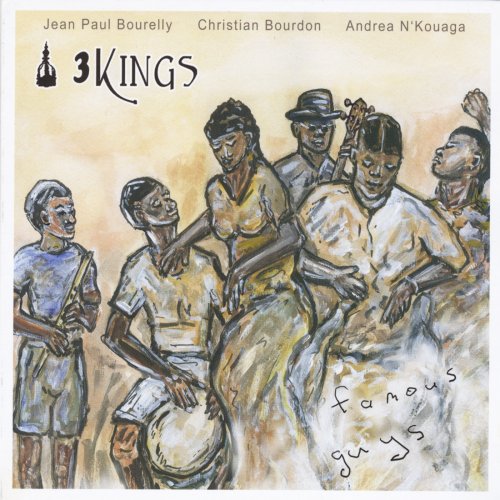
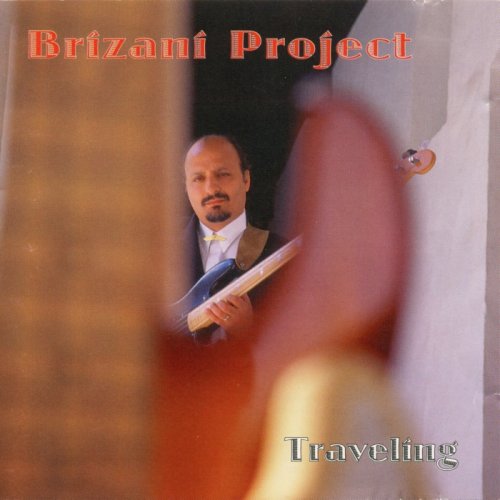
![Various Artists - Music For A Revolution Vol 2 : Guinea's Syliphone Recording Label (1968-1980) (2026) [Hi-Res] Various Artists - Music For A Revolution Vol 2 : Guinea's Syliphone Recording Label (1968-1980) (2026) [Hi-Res]](https://img.israbox.com/img/2026-02/21/jfwfvpseyfdkg8oktjmsf4l3o.jpg)
![Bop Juice - Live at Smalls (2026) [Hi-Res] Bop Juice - Live at Smalls (2026) [Hi-Res]](https://www.dibpic.com/uploads/posts/2026-02/1771597003_cover.jpg)
![Brandon Seabrook - Hellbent Daydream (2026) [Hi-Res] Brandon Seabrook - Hellbent Daydream (2026) [Hi-Res]](https://www.dibpic.com/uploads/posts/2026-02/1771429539_a1475136036_10.jpg)
![Jan Harbeck Quartet - Arena (2026) [Hi-Res] Jan Harbeck Quartet - Arena (2026) [Hi-Res]](https://img.israbox.com/img/2026-02/21/ta1geqbunymda1vazij2b7te7.jpg)
